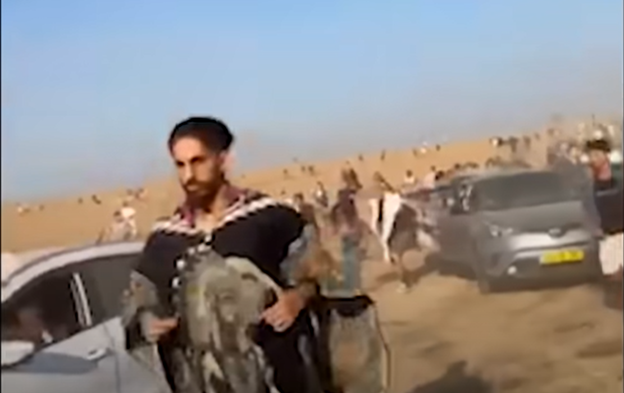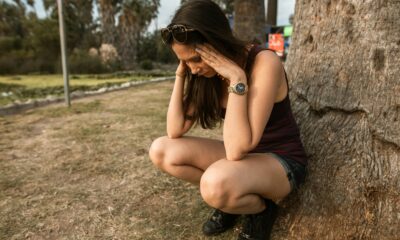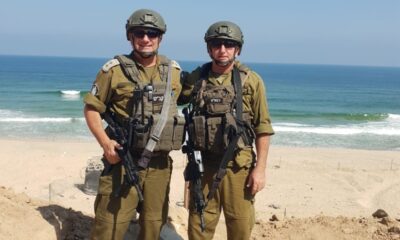
Israel

Survived to Tell gives testimony to global audience
Merav Barel, part of the non-profit nongovernment organisation Israel Is and a former Shinshinit (Israeli youth who do service in the diaspora) was told by her former army commander, Nimrod Ravid, that Harvard students had no idea what was going on in Israel since 7 October because of misinformation swirling on social media.
So, Barel, who did her diaspora year in Johannesburg, decided to use Israel Is to set up an initiative to tell the stories of those affected by the 7 October massacre.
The Instagram page “Survived to Tell” offers the stories of those who survived the Supernova massacre on 7 October as well as the survivors from kibbutzim that were attacked by Hamas.
“At first, I had to look for people who were willing to give their testimonies,” said Barel. “The first place I thought to look was the survivors of the massacre at the Supernova music festival as a lot of these people are my age. The page in the last month has grown so much and people are now approaching me to tell their story.
“On our first day, we got 15 000 followers and we now have more than 117 000 followers with more than 10 million views worldwide. The survivors of these massacres send in their testimonies and our editors work to translate them into English as well as Spanish and French so that they can be understood by all our viewers,” Barel said.
“We’re also collaborating with other organisations so that people everywhere can hear these testimonies. We’re working with Reichman University and the Israeli foreign ministry on this project. We just want these stories to be told. Our job is to try and tell what happened so that the world can be aware.”
One of the many stories told on Survived to Tell is the story of Rotem Yaakobi, one of the survivors of the Supernova massacre. “There’s no way to explain the pain, my heart is broken, and life will be different without all the people I love who are no longer with me,” Yaakobi wrote. “At sunrise, I was lifted onto my girlfriend’s shoulders, and we started seeing rockets and hearing interceptions. We were told by the festival managers that this wasn’t a joke, it wasn’t a dream, there was a red alert and we should lay on the floor.” At this point, we were still telling ourselves that everything would be fine, the music would come back.
“We heard screams that terrorists had penetrated the building,” she wrote. “We saw gunshot wounds, people were falling, being shot from everywhere, and then the nightmare began. As soon as I saw the bullets, I heard them hitting everywhere. The terrorists surrounded us and shot from every direction. We couldn’t see them, so it was impossible to figure out where they were firing from. We just saw people being shot and falling to the ground. It’s impossible to explain the fear, the helplessness, the realisation that my life would end there.”
Maya Alper, another survivor of the Supernova massacre said, “I don’t usually share too much on social media, but after running for my life, being shot at, and hiding in a bush for six hours, I realised that there are things worth sharing. I saw people being shot to death. I saw the smile on the terrorist’s face when he shot the girl who was with me and she fell to her death.”
Shai Sherem, a member of Kibbutz Nirim, wrote, “I was inside the shelter with my son, when the terrorists turned our house upside down and destroyed everything.”
Similarly, Yaniv Halili visited Kibbutz Reim, one of the kibbutzim that was attacked and the place where some attendees of the Supernova festival fled and were subsequently killed by Hamas terrorists. He wrote, “The sight of charred houses, burned while the families were inside, the stench of corpses still lingering in the air, legions of flies hovering over bloodstains, torn clothes full of blood – all these serve as living evidence of the massacre.”
Itzik Biton, a food truck supplier for the Supernova festival, told Survived to Tell, “We saw cars with holes in them, bodies thrown, sights I’ll never forget,” he said.
Angel Cohen, who also survived the Supernova massacre, told how her friend, Inbar, who was operating a painting booth at the festival was taken captive by Hamas. “It’s hard to imagine what she’s going through during these hours,” Cohen wrote.
Agam Yosefzon wrote, “The terrorists threw stun grenades and RPGs [rocket-propelled grenades] into our shelter. They dragged people out of our shelter.”
Tomer Mabraka wrote, “The terrorists slaughtered people next to us.”
This is just a small taste of the experiences described, an account critical for the world to hear.










